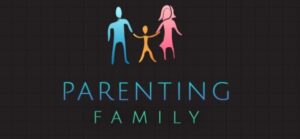What is Eggshell Parenting
Eggshell parenting refers to a present kind of parenting wherein parents become overly concerned with conflict or upsetting their children. Oftentimes, it has to do with overly protective behavior. Parents can be seen to be very careful around tough situations because they are afraid of what will happen if they confront issues. These parents believe that they’re doing so to protect the child’s feelings, but this style ends up not being able to teach a child boundaries or resiliency. Such a style eventually hinders a child’s emotional growth as well as the ability to cope with life’s challenges.

Negative Impacts of Eggshell Parenting
This sort of parenting makes children so fragile emotionally, as they will face little challenge, develop no coping skills, and be overprotective, enabling dependence, entitlement, and anxiety in children.
Eggshell Parenting Leads to Emotional Fragility in Children
Eggshell parenting actually means running away from the conflict and protecting children from all negative experiences in the shaped behavior of children. These children are emotionally weak. It also prevents them from developing coping mechanisms, as there is never a time when they have had to learn how to deal with being forsaken or having to suffer through a challenge. Thus, they become more susceptible to experiencing stress, disappointment, and hardship later on in life. Resilience is not taught to them so they are usually found grappling to handle their emotions and become incapable of facing challenges with maturity.
Eggshell Parenting Foster Entitlement and Dependency
Eggshell parenting, in which parents attempt to preserve the wellbeing of their children, leads to entitlement and dependency. Children tend to expect the world to accommodate them when they are constantly kept inside the protective boundaries from challenges. They would rather seek others to solve problems for them, than take on the difficult task of making their way through life on their own. Accordingly, they could learn to be dependent and not know how to take up responsibility as they grow up.

Can Hinder Conflict Resolution Skills in Kids
When parents practice an eggshell kind of parenting, they tend to avoid conflict resolution, thus making it impossible for children to learn life-coping skills in resolving conflicts. This is because when parents tend to shy away from difficult situations or arguments, they do not allow their children the opportunity to learn how to resolve such problems themselves. Consequently, children can find facing such situations with peers or other family members rather difficult as they grow. When devoid of such skills, they can hardly communicate well and easily solve issues in a healthy manner.
Effects Decision Making Abilities of Your Kids
Eggshell parenting influences decision-making in children. Such kind of parenting, where parents immediately intervene to prevent a problem from manifesting or making a choice on children, deprives them of practicing an important skill of personal reflection over important decisions. It is much more difficult for a child to later choose wisely when he faces a challenge in life. Thus they may face trouble with independence or decision-making later in life as they grow older.
Overprotective Parenting Contributes to Increased Anxiety in Children
Anxiety is increased in children due to overprotective parenting. Parents who suffocate their children do so in order to prevent them from any stressor or obstacles. Such conditions usually make such a child feel completely unprepared for any of the worldly experiences. Unable to combat a feasible situation, this lacks experience in a worried way in unfamiliar circumstances. Hence, this is the way that children end up being anxious and unable to manage the everyday life tensions normally.

How to avoid eggshell parenting?
Address your own Trauma
When exercising the practice of eggshell parenting, it is very important to tackle your own past traumas. Oftentimes, it is the case that parents tend to over-protect their children due to the events caused to them in the past. A parent who does not deal with emotional struggles ends up projecting it on his or her child. Healing and understanding one’s own self will help in a more healthy way of parenting-free from over protection and anxiety.
Encourage Problem-Solving
Wherever possible, do not solve the problems that he or she experiences. Ask questions to stimulate the child’s mind and lead him or her to think about their options. This will help the child devise his or her solution, hence boosting confidence. Also, it helps inculcate independence in the child while assuring them that one is available to assist whenever necessary.
Admit Your Faults and Try to Overcome Them
While balancing the eggshell parenting style, one should understand the mistakes one has made and try to even the score. Admitting to oneself and the child if one has found out that he or she is too overbearing or avoids difficult situations. In that way, it teaches them that it is okay to err and be in the process of refining. The good example of growth and resilience is setting the child to be followed by the very act.
Focus on Your Mental Health
If someone wants to end eggshell parenting style, one must focus on their mental well-being. Maintaining emotional health can be very calming and balancing. Therefore, making decisions for one’s child becomes an easier thought process. Because you are mentally fit, you will not overprotect or overreact very frequently. Self-help is the best step for sound parenting as it helps one to strike a sensible, healthy balance in parenting.
Don’t Be Over Protect
Eggshell parenting has to do with not overprotective parenting. It is natural to want to keep your child safe, but letting him experience some struggles strengthens him for independence. Having the freedom to make mistakes and learn from them builds his confidence. By stepping back sometimes, you help them learn some skills that they need to face an independent future.


